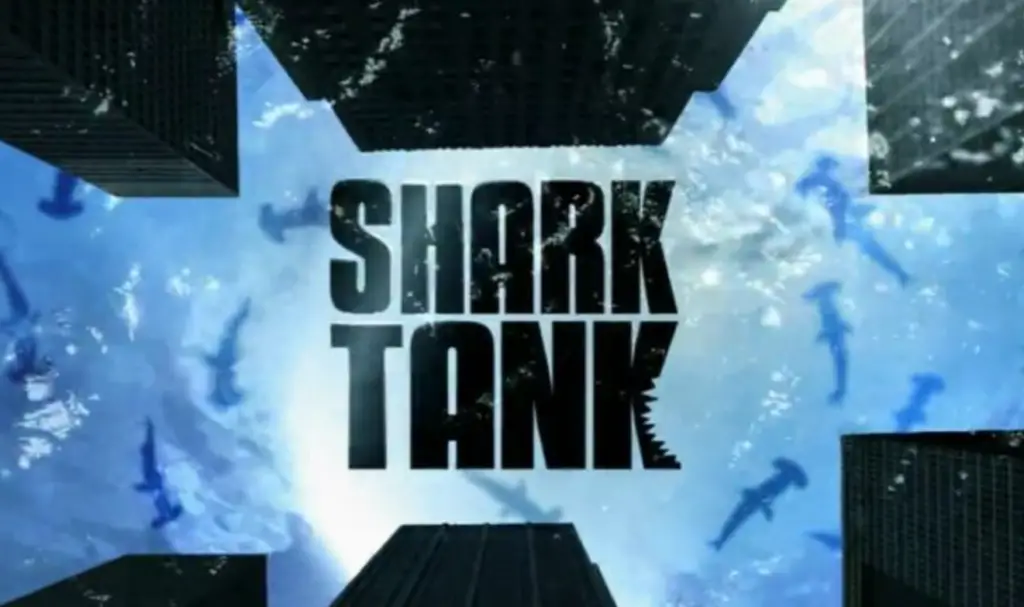Embarking on the entrepreneurial journey requires more than textbooks—it demands inspiration, real-world insights, and a dash of innovation. “Shark Tank,” a television phenomenon, opens a portal into the exhilarating world of pitching ideas, negotiating deals, and turning dreams into reality. For students aspiring to venture into the realms of business and innovation, this article unveils a curated list of the best “Shark Tank” episodes.
These episodes transcend mere entertainment, offering invaluable lessons that stretch from the art of pitching to the intricacies of market research and financial acumen—a comprehensive guide tailored to cultivate the budding entrepreneurs of tomorrow.
Why Is Shark Tank Good For Students to Watch?
Entrepreneurial Inspiration:
The show features entrepreneurs who pitch their business ideas to successful investors (the “sharks”). This exposure can inspire students to think creatively and consider entrepreneurship as a viable career path [1].
Learning about Business Concepts:
Students can gain practical insights into various business concepts such as marketing, finance, strategy, and product development by observing the pitches and negotiations on the show.
Real-World Applications:
“Shark Tank” showcases real entrepreneurs facing real challenges. Students can see how theoretical business concepts are applied in practice, offering a more tangible understanding of the business world.
Problem-Solving and Critical Thinking:
Entrepreneurs on the show often encounter tough questions and challenges from the sharks. Watching how these entrepreneurs navigate these situations can help students develop problem-solving skills and learn to think critically about business decisions.
Pitching Skills:
Observing how entrepreneurs present and pitch their ideas can be valuable for students who may need to pitch ideas in their academic or professional lives. They can learn effective communication and presentation skills.
Risk and Decision-Making:
The show highlights the risks involved in entrepreneurship and the importance of making informed decisions. Students can learn about risk assessment, decision-making processes, and the consequences of various choices.

Financial Literacy:
Students can enhance their understanding of financial terms, valuation, and negotiation strategies by watching the negotiations between entrepreneurs and the sharks.
Diversity of Industries:
“Shark Tank” features a wide range of business ideas and industries. This diversity can expose students to various fields and help them explore different areas of interest.
Understanding Investor Perspectives:
Students can gain insights into how investors evaluate business opportunities, negotiate deals, and assess the potential for success. This can be valuable for anyone considering seeking investment for their ventures.
Motivation and Resilience:
Entrepreneurship often involves facing rejection and setbacks. “Shark Tank” highlights the importance of resilience and perseverance, which can be motivating for students facing challenges in their endeavors.
Ways To Use Shark Tank in the Classroom:
One of the standout features of “Shark Tank” is the art of pitching. Entrepreneurs have a limited time to convince seasoned investors to buy into their business ideas.
This aspect of the show provides an excellent opportunity for students to learn and practice the art of effective communication and persuasion:
Classroom Application:
- Mock Pitch Sessions: Organize simulated pitch sessions in the classroom where students develop and present their business ideas. Encourage them to incorporate key elements such as a compelling introduction, a clear value proposition, and a realistic financial plan;
- Feedback and Iteration: After the pitch sessions, facilitate constructive feedback from peers and the instructor. Emphasize the importance of refining pitches based on feedback, a crucial skill in the iterative process of entrepreneurship;
Developing Critical Thinking Skills
Critical thinking is a cornerstone of successful entrepreneurship. Entrepreneurs must navigate uncertainties, make informed decisions, and solve complex problems. “Shark Tank” provides a platform where entrepreneurs face tough questions and challenges, requiring them to think on their feet.
Classroom Application:
- Analyzing Pitches: Assign students the task of critically analyzing selected pitches from “Shark Tank.” Encourage them to identify the strengths and weaknesses of each pitch, analyze the decision-making process of the sharks, and propose alternative strategies;
- Case Studies: Develop case studies based on episodes of “Shark Tank” that highlight critical decision points. This encourages students to evaluate the risks and benefits of different choices, fostering a deeper understanding of the decision-making process in entrepreneurship [2];
Understanding Market Research
Successful entrepreneurs have a deep understanding of their target market. They must identify customer needs, preferences, and market trends to develop products or services that meet demand. “Shark Tank” provides valuable insights into how entrepreneurs conduct market research to support their business proposals.
Classroom Application:
- Market Research Projects: Assign students market research projects where they analyze the viability of a business idea. This includes identifying the target market, assessing competition, and understanding consumer behavior. Students can present their findings in a format similar to a “Shark Tank” pitch;
- Guest Speakers: Invite entrepreneurs or professionals with experience in market research to share their insights with the class. This provides students with real-world perspectives and practical advice on conducting effective market research;
Understanding the Financial Components of Entrepreneurship
Financial literacy is a critical skill for entrepreneurs. The negotiations on “Shark Tank” shed light on the importance of understanding financial components such as valuation, revenue projections, and investment terms.
Classroom Application:
- Financial Workshops: Conduct workshops focused on key financial concepts relevant to entrepreneurship, such as valuation methods, budgeting, and financial forecasting. Use examples from “Shark Tank” to illustrate these concepts in a practical context;
- Financial Analysis Assignments: Assign students the task of analyzing the financial aspects of pitches on “Shark Tank.” This includes assessing the entrepreneurs’ valuation, understanding the sharks’ investment terms, and evaluating the financial feasibility of the proposed business;
Learning About Different Business Models
“Shark Tank” features a diverse range of business ideas and models, showcasing the versatility of entrepreneurship. Exposing students to various business models helps broaden their perspective and encourages them to think creatively about potential ventures.
Classroom Application:
- Business Model Presentations: Have students research and present different business models showcased on “Shark Tank.” This could include subscription-based models, e-commerce platforms, or innovative service models. Encourage students to discuss the strengths and challenges of each model;
- Class Discussions: Facilitate discussions on how different business models align with specific industries and market trends. Encourage students to debate the viability of various models and consider how they might apply these concepts to their own entrepreneurial endeavors;

Some Of The Best Shark Tank Episodes for Students:
Season 12, Episode 1
Memorable Pitches:
- FitFighter: A unique fitness product utilizing steel hoses filled with water for strength training;
- Hydrant: An electrolyte powder designed to optimize hydration, capturing the sharks’ attention;
Key Lessons for Students:
- Innovation and Uniqueness: The episode showcases the importance of bringing something new and innovative to the market. FitFighter’s unconventional approach to fitness equipment and Hydrant’s focus on hydration solutions highlight the power of unique selling propositions;
- Understanding Market Trends: Students can analyze how these entrepreneurs identified and capitalized on emerging trends in the fitness and wellness industries. This provides a lesson in staying attuned to market demands;
Season 5, Episode 20
Memorable Pitches:
Lori Cheek (Cheek’d): A dating app that connects people in real life using a deck of cards with pickup lines.
Key Lessons for Students:
- Adaptability: Lori Cheek’s journey on “Shark Tank” underscores the importance of adaptability in entrepreneurship. Despite facing rejection, she persisted and adapted her business model;
- Creative Marketing: The pitch highlights the role of creative and unconventional marketing strategies. Cheek’s used tangible cards as a bridge between online and offline interactions, demonstrating the power of out-of-the-box thinking;
Season 11, Episode 12
Memorable Pitches:
Lunchbox (Fridge Smarts): A product designed to keep food fresh in a lunchbox using smart technology.
Key Lessons for Students:
- Problem-Solving Through Technology: The episode emphasizes the role of technology in solving everyday problems. Students can explore how Lunchbox leveraged smart technology to address a common issue – keeping food fresh;
- Consumer Understanding: Entrepreneurs on this episode showcase the importance of deeply understanding consumer needs. Lunchbox’s focus on providing a solution to a daily problem resonates with consumers, a crucial aspect of successful entrepreneurship [3];
Season 11, Episode 1
Memorable Pitches:
Snacklins: A vegan and healthy alternative to pork rinds.
StepNpull: A foot-operated door opener for a hands-free experience.
Key Lessons for Students:
- Identifying Niche Markets: Snacklins’ success illustrates the potential of identifying and catering to niche markets, in this case, the growing demand for vegan snacks;
- Public Health Innovation: StepNpull’s pitch provides insights into how entrepreneurs can address current concerns, like hygiene, by innovating products with public health benefits;

The Best Shark Tank Pitch Videos to Show Students
In the realm of entrepreneurship education, “Shark Tank” pitch videos serve as engaging and instructive resources. These videos encapsulate the essence of entrepreneurial endeavors, showcasing creativity, business acumen, and the art of persuasion.
Here’s a curated list of some of the best “Shark Tank” pitch videos that educators can use to inspire and educate students:
- Scrub Daddy, Season 4, Episode 7
Key Lessons:
- Demonstrates the importance of a simple yet innovative product;
- Highlights effective use of demonstrations during a pitch;
- Illustrates the power of charismatic and passionate pitching;
- Rriveter, Season 7, Episode 24
Key Lessons:
- Explores a business model with a social impact;
- Demonstrates the significance of a compelling origin story;
- Discusses the challenges and advantages of a mission-driven company;
- Bee Free Honee, Season 7, Episode 23
Key Lessons:
- Showcases the innovation of a plant-based alternative;
- Discusses the importance of addressing market trends;
- Illustrates the value of resilience in the face of rejection;
- LuminAID, Season 6, Episode 21
Key Lessons:
- Highlights the combination of innovation and social entrepreneurship;
- Discusses the challenges of entering the retail market;
- Demonstrates the power of a well-prepared and confident pitch;
- Tipsy Elves, Season 5, Episode 10
Key Lessons:
- Emphasizes the role of branding and marketing in product success;
- Discusses the challenges and opportunities of seasonal businesses;
- Demonstrates the importance of a memorable and unique product;
- Lumi, Season 7, Episode 1
Key Lessons:
- Explores the potential of a niche market within the e-commerce industry;
- Discusses the challenges of international manufacturing and logistics;
- Highlights the importance of a scalable and sustainable business model;
- Drop Stop, Season 4, Episode 10
Key Lessons:
- Illustrates the value of solving a common and relatable problem;
- Discusses the challenges and opportunities of product development;
- Emphasizes the importance of a clear and concise pitch;
- Simple Sugars, Season 4, Episode 25
Key Lessons:
- Highlights the journey of a young entrepreneur in a niche market;
- Discusses the challenges of scaling a business while maintaining quality;
- Demonstrates the power of a personal brand and story;
How to Use Shark Tank Videos as Classroom Lessons?
- Introduction to Entrepreneurship:
“Shark Tank” offers a unique window into the world of entrepreneurship. Start your lesson by introducing the concept of entrepreneurship and explaining the format of the show. Discuss the role of investors, the importance of a compelling pitch, and the dynamics of negotiation. This sets the stage for students to understand the context and purpose of watching the videos.
- Selecting Relevant Episodes:
Not all “Shark Tank” episodes are created equal, and the selection of episodes plays a crucial role in delivering targeted lessons. Choose episodes that align with the topics you want to cover in your curriculum. For example, if you’re focusing on market research, select episodes where entrepreneurs demonstrate a deep understanding of their target audience. Make a list of key lessons you want to highlight.
- Analyzing Pitches:
Encourage students to actively watch the pitches. Provide them with a framework for analysis, considering aspects such as the uniqueness of the product or service, the effectiveness of the pitch, and the entrepreneurs’ responses to questions. Ask students to identify the strengths and weaknesses of each pitch. This not only enhances their critical thinking skills but also fosters a deeper understanding of what makes a pitch successful.

- Class Discussions:
After watching the episodes, initiate class discussions. Encourage students to share their insights, observations, and questions. Discuss the strategies employed by the entrepreneurs, the tactics used by the sharks, and the decision-making processes involved. Engaging in open conversations allows students to learn from each other’s perspectives and widens their understanding of the entrepreneurial landscape [4].
- Role-Playing Exercises:
Take the learning experience a step further by organizing role-playing exercises. Assign students roles as entrepreneurs, investors, or even moderators, and have them recreate a “Shark Tank” scenario. This hands-on activity allows students to apply the lessons they’ve gleaned from the videos, helping them understand the challenges and dynamics involved in real-life pitching and negotiation [5].
FAQ:
- What is the best episode on Shark Tank?
Determining the “best” episode is subjective, as it depends on individual preferences. However, episodes featuring groundbreaking pitches or memorable success stories, such as the Scrub Daddy episode in Season 4, and Episode 7, are often considered among the best.
- What is the most successful pitch on Shark Tank?
The most successful pitch is debatable, but one of the standout success stories is the Scrub Daddy, a smiley-faced sponge, which became one of the highest-grossing products after appearing on the show.
- Can you go on Shark Tank with just an idea?
While having a prototype or proven concept can enhance your chances, entrepreneurs have appeared on Shark Tank with just an idea. However, a well-developed business plan and a clear vision for execution are crucial.
- Does Shark Tank pay?
No, being on Shark Tank does not guarantee payment. Entrepreneurs pitch to secure investment from the Sharks, who invest their own money in exchange for equity or a royalty agreement in the presented business.
- Do sharks get paid in Shark Tank?
The Sharks do not receive salaries for their participation in Shark Tank. Their income is generated through their investments in the businesses featured on the show.
- Is Shark Tank scripted at all?
While the general format and structure of the show are planned, the interactions between entrepreneurs and the Sharks are unscripted. The entrepreneurs’ pitches and the Sharks’ responses are genuine, contributing to the authenticity of the show.
- Who has the most successful businesses from Shark Tank?
Numerous entrepreneurs have found success after appearing on Shark Tank. Some notable examples include Scrub Daddy, Tipsy Elves, and the Bouqs Company, each experiencing substantial growth post-show.

- Which Shark invested most in Season 1?
Kevin Harrington was the primary investor in Season 1, known for his involvement in infomercials and the creation of the “As Seen on TV” brand.
- When was the 100th episode of Shark Tank?
The 100th episode of Shark Tank aired on February 10, 2012, during Season 3. The milestone was celebrated with special features and highlights of the show’s memorable moments up to that point.
Useful Video: Best Of Season 14 | Shark Tank US
References:
- https://startupmindset.com/5-best-shark-tank-episodes-for-students/
- https://serieswithsophie.com/shows/shark-tank/best-episodes
- https://www.looper.com/881934/best-shark-tank-episodes-ranked/
- https://sharktanktales.com/best-of-shark-tank/best-young-entrepreneurs-shark-tank/
- https://www.mindsetnmilestones.com/how-to-use-shark-tank-in-the-classroom/














Leave a Reply